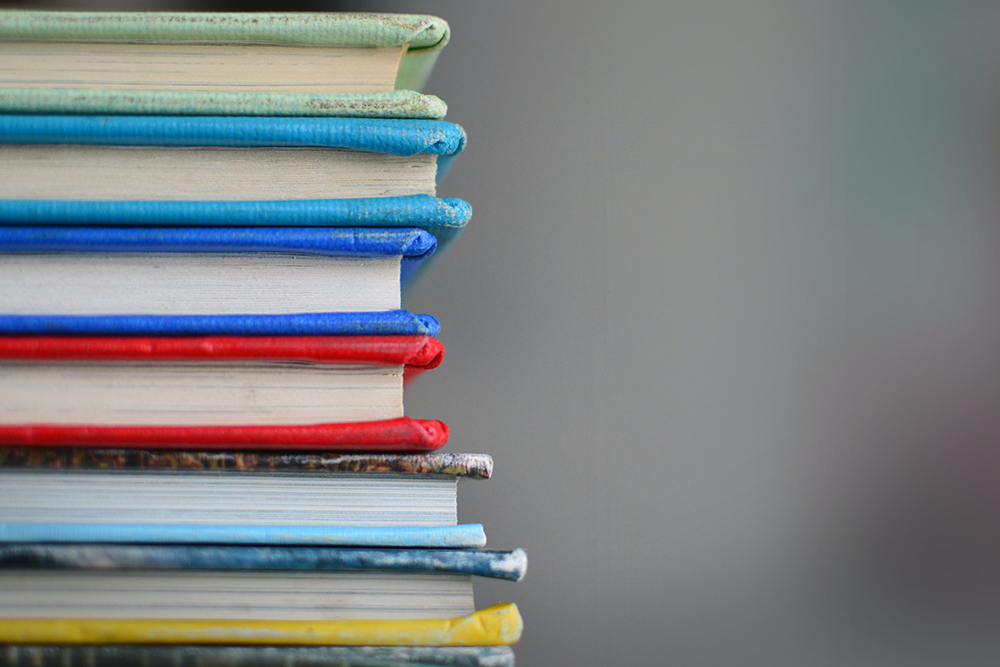Recommended reads from Indigenous Initiatives staff
June 30, 2020
Share

As National Indigenous History Month came to a close last week, staff in Queen’s Office of Indigenous Initiatives collected a list of important book suggestions for the campus community to continue its learning into the summer.
“It’s important for Canadians to read books by Indigenous authors as this provides an opportunity for learning and can help to foster a stronger understanding of the different perspectives that Indigenous Peoples may hold,” says Kanonhsyonne (Janice Hill), Associate Vice-Principal (Indigenous Initiatives and Reconciliation). “My hope is that these books will inspire the Queen’s community to approach relationship building, reconciliation, and conciliation with Indigenous Peoples in a good way.”
The range of literature spans topics of history and politics, philosophy, gender, poetry, language and education, and a book for children.
Recommended reading list:
From Kanonhsyonne (Janice Hill):
Medicine Walk by Richard Wagamese
A very moving, thoughtful and thought-provoking story about family, identity, and connections with self, others, and Creation.
In Divided Unity: Haudenosaunee Reclamation at Grand River by Theresa McCarthy
Important in understanding the deep-rooted ideas that informed the Grand River Community and their decision to reclaim contested lands in 2006. Speaks to Haudenosaunee traditional cultural representations and the importance of the women.
Thinking in Indian: A John Mohawk Reader by Jose Barreir
John Mohawk was a highly respected Haudenosaunee philosopher, thinker, activist, and scholar, as well as an elder of the Seneca Nation. He was a deeply-rooted Haudenosaunee traditionalist whose oratory and thinking continues to inform Haudenosaunee activism.
From Wendy Phillips, Elder in Residence:
Think Indian by Basil Johnston
A collection of essays from an Indigenous linguist and first language speaker that covers a range of topics, from language and storytelling, to culture and education.
From Haley Cochrane, Project and Communications Coordinator:
21 Things you May Not Know About the Indian Act by Bob Joseph
An eye-opening read for those interested in learning more about the Indian Act and the discrimination Indigenous Peoples have faced and continue to face as a result of unjust systemic policies and practices in Canada.
From Amy Brant, Training Facilitator:
Indigenous Writes by Chelsea Vowel
Chelsea touches on many issues about Indigenous people in Canada today, from terminology and law, to culture and identity. A good read for anyone wanting to delve into issues from an Indigenous perspective and Chelsea really keeps you engaged throughout the book, writing as if she is sitting and talking with you.
From Marshall Hill, Research Assistant:
Indian Land by Lesley Belleau
A collection of poems written from the perspective of an Anishinaabe woman with a fierce love for her people, her family, and the land.
You Are Enough: Love Poems for the End of the World by Smokii Sumac
Winner of the 2019 Indigenous Voices Award for Published Poetry in English, this collection is a complex yet forceful meditation on grief and love, consent and gender, through the life of a Ktunaxa Two-Spirit person.
From Sara Mouland, Office Assistant:
The Mishomis Book by Edward Benton-Banai
A good read with stories, myths, and traditions for children.